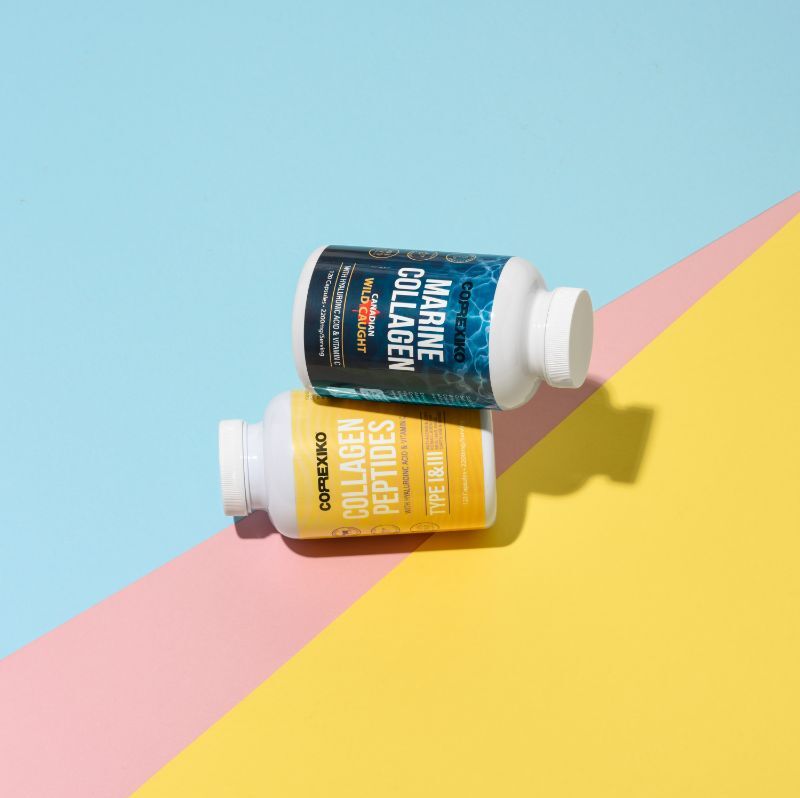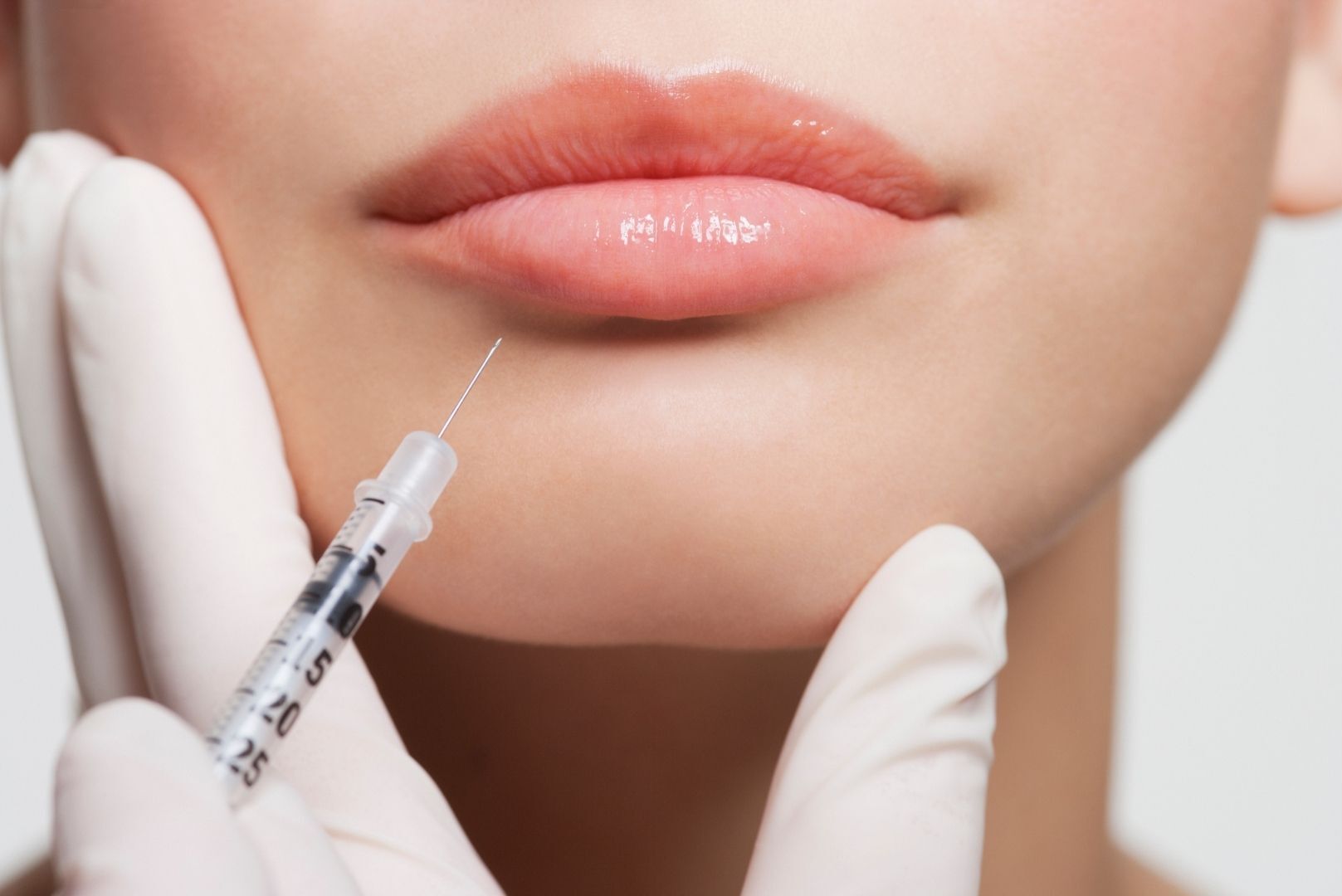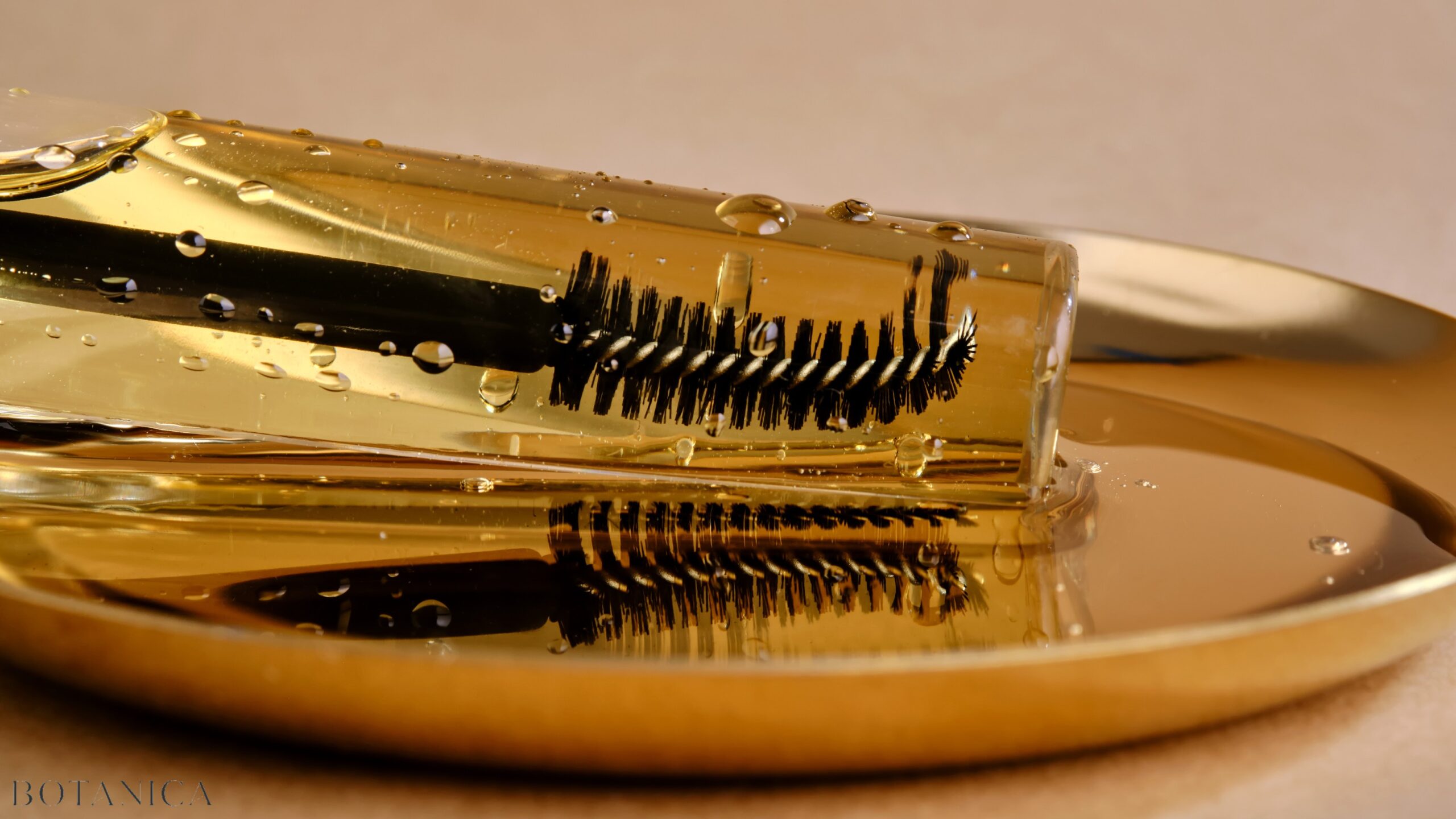
Does Eating or Drinking Collagen Actually Help My Skin?
We’ve all heard about how important collagen is for our skin, so it’s easy to assume the next best thing would be to consume it. However, there is a lot of speculation around this “fountain of youth” in a bottle. Ahead, we break down if ingestible collagen supplements are actually effective.
What Is Collagen?
Collagen is one of the most abundant proteins in our bodies. It is also present in large amounts in our bones, muscles, and ligaments. It’s considered the scaffolding that holds the body together. In the skin specifically, collagen helps form a network of fibers, so new skin cells can grow. With the help of elastin, this dynamic team keeps the skin plump and youthful. An interesting fact is that the word “collagen” comes from the Greek word “kólla” which means glue.
How Do Collagen Supplements Claim To Work?
As we age, not only does our production of collagen decrease but the quality of our collagen worsens. This contributes to sagging, fine lines, and wrinkles. The theory behind drinkable or ingestible collagen supplements is that it can improve and boost our body’s collagen and collagen production, thus resulting in improved skin quality, anti-aging benefits, and other medical benefits like joint and muscle improvements.
Collagen supplements are in a class called nutraceuticals, which are foods full of nutrients with claims to improve health. They are available in numerous formulations like peptides, proteins, or hydrolysate. The most popular form is hydrolyzed collagen because it has a lower molecular weight and higher water-solubility, which means it can be dissolved in drinks and food more readily. It’s most commonly found in powder form which can be added to coffee or a smoothie. They are also available in gummies, capsule, and liquid forms, effervescent tablets that are dissolvable in water, protein powders, super greens powders, and meal replacement bars. You may have also heard of collagen bone broth which does contain collagen in addition to several other nutrients.
Most collagen supplements originate from animal sources such as pigs, cows, and what is referred to as “marine collagen” which is made from fish. As far as vegetarian and vegan options go, truth be told, there are no alternatives despite plant-based supplement brands selling collagen products. At a closer look at these supplements, you will find with vegetarian and vegan options that they are actually collagen-boosting with ingredients like vitamin C and zinc that stimulate the body’s own collagen but don’t contain any collagen at all.
Can Drinking or Eating Collagen Improve Skin Health?
The fact is, whether the ingestion of oral collagen supplements work is still very much up for debate. There are very few scientific studies and many of them have been performed by brands of collagen supplements themselves which could produce bias results. With the available studies, many of them have all come back with mixed results.
Many of these studies have been performed on animals and what works in a lab doesn’t always work or translate for our skin.
Recently, there has been new data suggesting that oral collagen supplements may be effective. The idea is that the active collagen fragments are absorbed through ingestion and circulate through your bloodstream to your skin. More data needs to be gathered to validate initial studies, but if effective, these supplements can help the way we treat aging skin. Advocates of collagen drinks and pills say that traditional skin serums only penetrate the top layer of your skin—new types of ingestible collagen peptides are more easily absorbed by your body and can boost collagen in your skin’s deeper layers.
Another study by the Natural Medicine Journal showed that women who took the dietary supplement Collagen BoosterTM saw significant improvement in their percentage of pores and hyperpigmentation spots after six months. Other studies published in Skin Pharmacology and Physiology found that a collagen supplement named Versisol improved skin elasticity and reduced wrinkles around the eyes by 20 percent after just eight weeks
The most comprehensive review of ingestible collagen supplements was published in the Journal of Drugs in Dermatology. This review of the literature included only randomized, placebo-controlled trials using collagen supplements in humans. This means that the researchers did not know whether or not the subjects were consuming collagen supplements or if they were consuming placebo (non-collagen supplements). A total of 11 studies looking at the results of over 800 patients were reviewed. The studies looked at different formulations of collagen supplements like collagen hydrolysate and collagen peptides. The results were variable, with some studies showing no statistically significant improvement while others did show some benefit. Some objective measurements, like hydration of the skin, were improved with oral collagen supplements. However, many of the studies relied on subjective measurements like patient satisfaction and visual improvement. These are much more prone to anecdotal experiences and errors when reporting results.
Lastly, it’s important to consider our digestive process. When we ingest collagen (which is technically a protein) our stomach acid breaks it down and converts into the amino acid proline-hydroxyproline. There is little proof collagen survives digestion and it may be unlikely that any collagen makes it into the bloodstream let alone the correct layers of the skin. However, there is some good news. This particular amino acid helps to increase the skin’s hyaluronic acid content, which means the skin could appear more hydrated. This would seemingly improve skin laxity and improve the appearance of saggy and wrinkled skin.
As for right now, every study you find that supports collagen supplements, you can find another contradicting it.
Is Collagen Consumption Bad For You?
The good news is that most studies show collagen supplements are safe without any side effects. The most common side effects noted are digestive issues like fullness or heartburn. If you have a history of kidney stones, it’s probably best avoiding it. Otherwise, collagen supplements are safe to use.
The Most Effective Ways To Increase Collagen Production
While there’s still more work to be done on the effectiveness of increasing collagen levels via eating and drinking, there are some other methods that have been proven in clinical studies to increase collagen production. These methods are as follows:
Sunscreen
Sunscreen is the number one step to stop aging. Every day, we are exposed to UV rays. UV rays directly cause collagen degradation. By wearing a broad-spectrum sunscreen with at least an SPF of 30-50+ daily, we slow or even halt the gradual breakdown of collagen.
Antioxidants
The importance of a diet rich in antioxidants that contain vitamin E, C, and zinc which are helpful to the body’s process of creating new collagen. These are foods like fish, berries, green leafy vegetables, green and white tea, etc.
Another option to benefit from antioxidants is applied topically in a potent serum. Ideally, both topically and dietary consumption of antioxidants to stimulate collagen. For example, a focus on antioxidants like vitamin C. Vitamin C is critical for the production of hyaluronic acid and collagen. It also helps protect our skin against free radicals, oxidative stress, and UV rays – all things that degrade collagen.
Retinoids
Retinoids are vitamin A derivatives that are key to all anti-aging skincare routines. Retinoids, (including retinol) directly upregulate our genes and cells that are involved with collagen production. It increases collagen and collagen precursors, increases cell turnover, and has been proven to reduce wrinkles.
Aesthetic Procedures
Microneedling is a professional, in-office procedure that uses tiny needles to penetrate the skin in a controlled environment. These micro-injuries stimulate our body’s own natural repair system to rebuild collagen in the skin. The procedure is safe and very effective.
Laser treatments and chemical peels also create intentional controlled injuries in the skin; the healing response to these wounds involve the production of new collagen.
Lifestyle Habits
It is also important to note that certain lifestyle habits contribute to the breakdown of collagen as well such as smoking or a diet high in refined carbohydrates and sugar. Chemicals in tobacco smoke have been found to break down collagen and elastin. And diets that are high in refined carbohydrates and sugar have been shown to break down collagen in a process called glycation which is when excess sugars in the body bind to collagen and elastin proteins and over time impair normal cellular function.
The Takeaway
Needless to say, the evidence is conflicting and the efficiency of ingestible collagen supplements is unproven; they are also safe to consume if you like them. At the very least you will be benefiting from plenty of other terrific vitamins and minerals so it really can’t hurt.



Leave a Reply